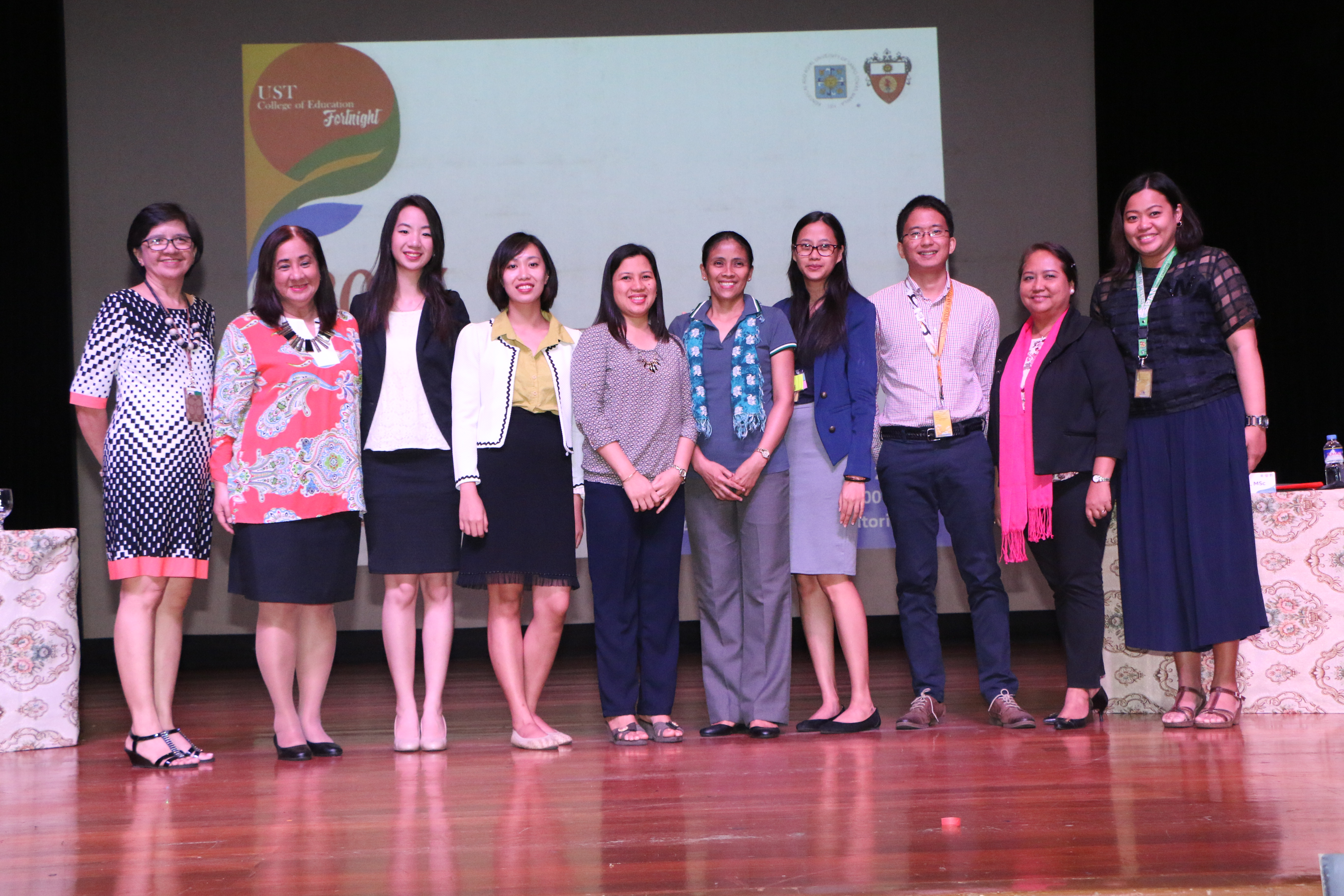

Dr. Ramos and Ms. Bandonill together with the ND
professors
On April 25, 2017, the Nutrition and Dietetics and Food Technology students participated in a colloquy entitled “Oh! My Rice!” Co-organized by the Nutrition and Dietetics Department and the Food Technology Department, experts from the Philippine Rice Research Institute were invited to discuss the health benefits of rice. The colloquy was held at the Albertus Magnus Building, in celebration of the 91st Founding Anniversary of the College of Education
Dr. Riza G. Ramos, Supervising Science Research Specialist from the Philippine Rice Research Institute, delivered her talk entitled, “Revisiting our Gifts as an Agricultural Nation”. Ramos described what they do at the Philippine Rice Research Institute. Their studies focus on the nutrition, quality and production of rice. They seek to find ways of reducing production cost; investigate ways to make seeds tolerant of diseases; design machines for land preparation; develop better pest, water, and nutrient management practices; and provide help and support to Filipino farmers. She urged the audience to try farming and grow their own food for better nutrition and livelihood. She also shared information about the Philippines being an agricultural country. Statistically, 40-50% of the members of the labor force in the country are in the agriculture sector. Dr. Ramos also shared the various problems that farmers and the rice industry in general are currently facing. Some of the problems mentioned were the rapid growth of population vis-à-vis rice production; natural calamities that directly affect farm areas; drought; lack of water sources for farming; insufficient extension workers; yield gap of crops, and extreme weather events. She also shared that the Philippines is the 9th largest producer of rice in South East Asia but ironically, also the largest importer in 2010. Dr. Ramos urged the audience support the agriculture sector and help Filipino farmers by being riceponsible. As a consumer, she suggested eating brown rice; adding sweet potato, vegetables or other staples to lessen rice consumption; joining advocacies to help achieve rice self-sufficiency; purchasing local varieties of rice; and most importantly, not to waste even a single grain of rice.
“Sometimes, depression is conveyed better in their play or their drawings or paintings than in their conversation,” Yatco-Bautista added. Yatco-Bautista said that suicide is almost always the result of a mental illness usually depression. “In assessing students, it is important to bear in mind that their parents are not always aware the depression in their children. The children tend to be better sources of information than their parents. The more serious report should be given the greater weight.”
The second part of the colloquy was delivered by Ms. Evelyn Bandonill, MSc. Her talk entitled, “Beyond Staple: The Functional Benefits of Rice”, delved on the types of rice and their nutritional benefits. She likewise showed a variety of dishes and products made from different rice types.